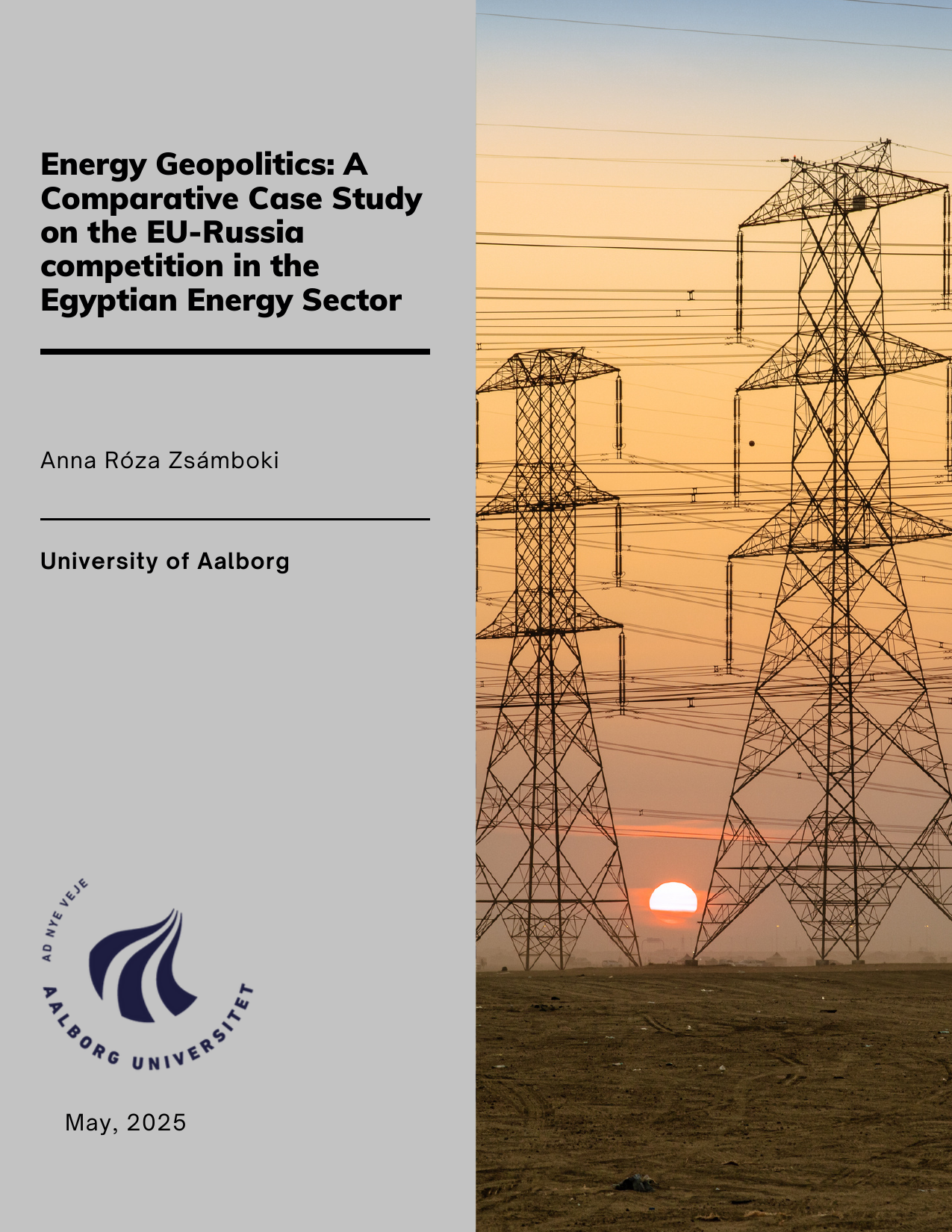
Energy Geopolitics: A Comparative Case Study on the EU-Russia competition in the Egyptian Energy Sector
Author
Term
4. semester
Education
Publication year
2025
Submitted on
2025-05-27
Pages
55
Abstract
As global powers compete for influence in strategic regions, energy diplomacy has become an important tool of foreign policy. Egypt is a growing energy hub in the Eastern Mediterranean, with a strategic location connecting Europe, Africa and the Middle East. This has attracted foreign powers, such as the EU and Russia, as strategic investors and geopolitical contenders in the region. While much attention has been given to the rivalry between the EU and Russia, few studies have focused on their indirect geopolitical competition in third countries’ energy sectors, such as Egypt. This thesis aims to uncover how are the EU’s and Russia’s geopolitical and strategic motivations reflected in their respective approaches to Egypt’s energy sector. The following research combines Regional Security Complex Theory with Energy Transition Theory. This framework captures the global and regional levels of the competition, highlighting regional political implications and broader global energy transition elements reflected in the EU-Russia standoff in the Egyptian energy sector. By applying a qualitative, comparative case study approach, policy documents, official statements and news, as well as trustworthy academic sources are reivewed. The case of Egypt was chosen due to its relevance in EU’s and Russia’s foreign policy agendas, as well as its growing importance as an energy hub with new natural gas discoveries and green hydrogen potential acknowledgements. This theis finds that while both the EU and Russia have similar objectives, namely, to gain more influnece in the region through engagement in Egypt’s energy market, their respective approaches suggest distinct goals. The EU emphasizes renewable energy transformation, as well as regulatory and normative harmonization, which suggests that its broader goal is to integrate Egypt into its energy market as a supplier of renewable energy. By investing early in the green energy transformation of the country, the EU aims to create an asymmetrical relationship with Cairo, leading to more favourable energy supply agreements in the future. The renewable energy engagement also supports Brussels’s goal to eliminate Russian imports from its energy mix, achieving higher levels of energy security. On the other hand, Russia’s focus is on large-scale infrastructure investments, with nuclear energy as a main path. Moscow aims to secure new, stable energy export markets in Egypt. By establishing a 60-year-long contract of providing nuclear fuel for the El Dabaa nuclear power plant, and exporting Russian technology through the state-owned ROSATOM energy company, Russia is securing long-lasting, reliable energy export regions. This also aligns with its broader goal to diversify energy markets after the EU’s turn from them, as well as maintaining its position on the global energy markets, as a leader in nuclear energy and related technologies. This research contributes to the understanding of how energy diplomacy shapes regional geopolitics, and offers insight into the nature of great-power competition in less researches contexts, such as Egypt.
Documents
